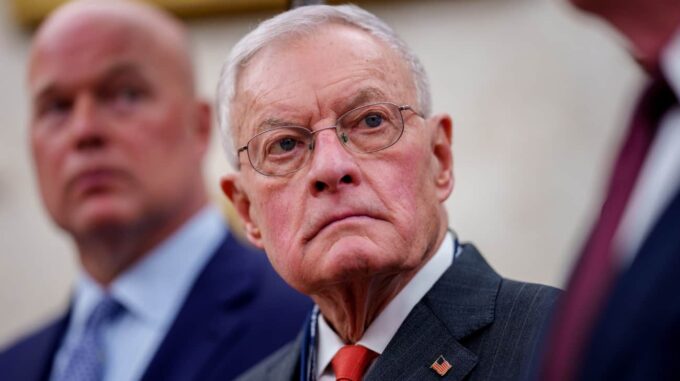Kellogg sharply criticized Putin’s “reconciliation”: called the idea of a three-day truce an absurdity

The U.S. Special Representative for Ukraine, Kit Kellogg, made a sharp and pointed comment regarding the Kremlin’s announced "ceasefire" in the Russia-Ukraine war. Rejecting Russian leader Vladimir Putin’s proposal for a three-day exclusive ceasefire, he clearly indicated that America supports the concept of a longer and comprehensive ceasefire, which would help reduce bloodshed and stabilize the situation on the battlefield. Source: "European Pravda" (report based on Kellogg’s interview on Fox News) In his comments on the recent peace processes, the diplomat emphasized that the U.S. is currently in a very advantageous position concerning support for Ukraine. "As for the three-day ceasefire — it’s complete nonsense," he stated, commenting on the Russian leadership’s initiative for a ceasefire from May 8 to May 10. In his view, this tactic is part of a broader strategy aimed at easing tensions and creating a positive environment for negotiations, but in reality, it has little impact on the course of military operations. Kellogg underscored that the U.S., instead, advocates for a large-scale, all-encompassing ceasefire — one that covers all fronts: at sea, in the air, on land, involving infrastructure objects, and lasting at least 30 days. He expressed confidence that after this initial phase, if the Ukrainian side responds positively, a continuation of the ceasefire could be possible. Thus, according to diplomats, everything depends on Russia and personally on the will of Vladimir Putin. "Everything that Ukrainians are ready to do depends on Russia and its leader. One side has already agreed to some conditions, so it remains only to negotiate with the other. I believe we are approaching that moment," Kellogg noted. Meanwhile, on the eve, the Kremlin made a new statement regarding a possible "ceasefire" with Ukraine. Vladimir Putin said that the Russian authorities decided to declare another temporary cessation of hostilities during Victory Day celebrations — from midnight on May 8 to midnight on May 11. This decision received mixed reactions worldwide, as many experts view it as a tactical move aimed at creating the appearance of readiness for negotiations, while not conceding core positions on the battlefield. For their part, Italian Prime Minister Giorgia Meloni spoke extensively about this initiative, describing it as insufficient and calling for the pursuit of a just and lasting peace, which would truly resolve the conflict rather than serve as a symbolic pause for political games. The international analytical centers and British intelligence lean toward the view that this three-day pause in fire, announced for May 9 celebrations, has a more strategic significance than initially appears. They predict that this step serves two main purposes: first, to demonstrate Russia’s openness to possible agreements and compromise; second, to limit Ukraine’s actions involving long-range weapons and missile strikes, without deteriorating its own positions on the front and maintaining the possibility for further actions. Thus, against the backdrop of the increasingly tense situation in Donbas and around Ukraine, signals from both sides indicate that complex game-playing is underway on the diplomatic front, with each side trying to exploit any opportunity to achieve its goals. Meanwhile, the international community is closely monitoring developments, hoping that, despite the tangled and complex process, a pathway to a just and long-term peace may eventually be found.

